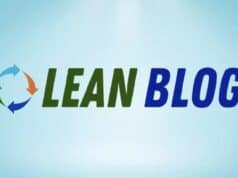Following the pattern of our good friend Ron Pereira at the Lean Six Sigma Academy, a number of us are going “Best of 2008” posts, in coordination with John Hunter and the Curious Cat blog.
Click here for John's compilation of the “Best of” Posts (he's updating as the others get their posts up).
Here are some of my favorite blogs that I follow regularly and their best posts of 2008. I'm looking forward to what they have to say in 2009.
DailyKaizen (Group Health Cooperative)
- Why I Work in Healthcare: “The healthcare industry needs to start to pay attention to what other industries have already figured out. That the same reasons that we give as excuses on why processes cannot be standardized is the exact reason why we need to make them standard. The more complex a process the more important it is to standardize in order to bring it under control and then understand where it can be simplified.”?
- About Visual Management: “The visual system should always help the team that is using it improve their work. Whether it is a front line team or a management team the information provide by the system should drive improvement action or it is simply waste.”
- What Do I Do?: “I tried to describe to them that it is my job to support leaders in the improvement of the management processes of the organization and got back blank stares. I then talked about my coaching work with executives and when asked what I coach them on I often was stuck with saying “almost everything.” Once again blank stares.”
- Projects vs. Process Improvement: “As an organization we are still living with a slight hangover from our long history of Management by Objective (MBO).”
- The Most Frustrated Person in Your Company: “And, to my surprise and perhaps to yours, there is no one in the organization who is more frustrated than the CEO. Your CEO. Why? Because he can't get done anything that he wants to get done!”
- Survive to Make Money or Make Money to Survive?: “I think many of the GM people who spent time learning at NUMMI did in fact learn a lot — they got it, all right. But, “getting it” and knowing what to do with it back at GM to turn that monster around was a vastly different story. So, why didn't GM learn? Or why didn't they change based on what they learned about lean from NUMMI?”
- New Year 2009: “It is indeed my hope that lean will make all of our lives better, something that, we desperately need wherever we are in the world after a tumultuous 2008. Here's to a prosperous and happy — a better — 2009.”
Elegant Solutions (Matthew May)
- Letter to Apple: Think Lean, Not Different!: “You're also quite good at creating something called MURI, or overload. Because you decided (in what I'm sure you considered a brilliant flash of genius) to launch the iPhone 3G on the same day in over 20 countries, you effectively made it impossible for customers to do what you wanted them to do in the first place: pick up a phone at the store and walk out being able to actually use it.
- Toyota's Value Innovation: The Art of Tension: “This is a great example of what I call dynamic tension, which is Toyota's practice of pairing conflicting goals and demanding simultaneous resolution.”
- New or Different?: “Nearly everything we might think of as new and revolutionary is in reality quite evolutionary. For example, E-mail is a combination of two pre-existing applications, one written for a computer to send messages to itself, the other written to enable two computers to communicate. Or take the TiVo recipe: one part computer, one part TV Guide, one part video recorder—mix and stir.”
- 2009: Don't Just Do Something: “As is natural and intuitive, I had been looking at what to do, rather than what to not do. But as soon as I shifted my perspective, the vaunted Toyota Production System became for me a study of what wasn't there, and of how and what to stop doing.”
- The Importance of Heijunka: “When you allow outside-induced variation to work its way through your system, you are putting potholes in the road. You are introducing sudden turns, sudden changes. Sometimes you are washing out entire bridges.”
- Mura, Muri (and Muda) in Healthcare: “For management, the question is a simple one: Is this task one which you would deliberately design into this person's work process? If not, then question why it must be done at all. But you can't just question it. That implies the person doing it is doing something wrong. She isn't. She is doing exactly what must be done to do the job she was given. Question why it must be done so you can remove the necessity to do it.”
- Management by Measurement vs. a Problem Solving Culture: “You get what you measure, but don't be surprised if people are ingenious in destructive ways in how they get there. You can't force a solution by adding even more metrics.”
Subscribe via RSS | Lean Blog Main Page | Podcast | Twitter @MarkGraban
What do you think? Please scroll down (or click) to post a comment. Or please share the post with your thoughts on LinkedIn – and follow me or connect with me there.
Did you like this post? Make sure you don't miss a post or podcast — Subscribe to get notified about posts via email daily or weekly.
Check out my latest book, The Mistakes That Make Us: Cultivating a Culture of Learning and Innovation:






